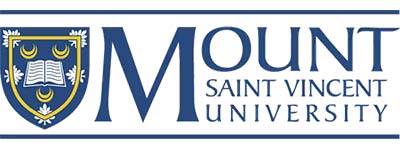
postgraduate
DegreeMaster of Applied Human Nutrition (Course-Based)
Quick facts
-
Annual tuition (2023)
$12,852 CAD
-
Application fee
$50 CAD
-
Duration
1 year
-
PGWP
1 year
-
Min GPA
3 out of 4
These items are optional and you can choose them as you wish after applying for the course.
Deadlines
Overview
Master of Applied Human Nutrition
The Master of Applied Human Nutrition program provides students with the opportunity for advanced-level study in nutrition, emphasizing issues related to community nutrition, food, and human nutrition.
The program explores the theoretical foundations of nutrition through critical reflection on current research and practice within the discipline and drawing from other related disciplines.
The Master of Applied Human Nutrition at Mount Saint Vincent University is comprised of five units of coursework.
Students seeking registration as a professional dietitian and who meet Partnership for Dietetic Education and Practice (PDEP) undergraduate competencies may also apply to the Internship Education Program when they apply to the Master Applied Human Nutrition program.
The Internship Education Program enables students to build on theoretical knowledge and internship experiences to fulfill the competencies required by PDEP to reach entry-level professional dietetic competence.
Students who are not seeking registration as professional dietitians may apply for the Food and Nutrition Practicum Program during their study in the Master of Applied Human Nutrition programs.
Students accepted into Internship Education Program are not eligible for the Food and Nutrition Practicum Program.
Estimate your cost
Residency
Count of person
$20,845
Total costs
yearly
Details
| Cost of living | 1 person | $7,260 |
| Accommodation | 1 bed room | $7,993 |
| Tuition | 1 person | $12,852 |
Hourly wage
Min wage
15.00 CAD / 1 hour
in Canada every student can work 20 hour per week
Required documents
- Statement of Intent
- Two letters of reference (academic references)
- Official transcript
- Language proficiency test
- Passport
Language requirements
IELTS
6.5
listening
6.5
writing
6.5
speaking
6.5
reading
TOEFL
23
listening
23
writing
23
speaking
23
reading
PTE
-
listening
-
writing
-
speaking
-
reading
Cambridge
-
listening
-
writing
-
speaking
-
reading
Students conditionally admitted to a graduate program of study, who have an IELTS score between 6.5 and 6.9 or the equivalent, will be required to successfully complete the Graduate Preparatory Program (GPP).
The GPP is designed to ensure that incoming graduate students have a high level of English language proficiency and a strong orientation to Canadian academic culture.
The GPP consists of an intensive term-long 15 hour/week program offered by the International Education Centre (IEC) and an undergraduate academic course.
The course is determined by the Graduate Admissions Committee for the student’s intended program of study and indicated on the student’s data form. This course is normally taken concurrently with the IEC program.
Academic background and requirement
Students normally have completed an undergraduate degree in nutrition, dietetics, foods or related fields, e.g. health sciences, kinesiology, biology, biochemistry, health promotion/education, and nursing.
Credit in the following undergraduate courses will normally be required: applied statistics; biochemistry; physiology; sociology, psychology or communications; and 3000 or 4000 level human nutrition.
Career opportunities
- Public health nutrition specialist
- Nutrition program manager
- Research coordinator
- Regional/public/international health agencies worker
- Regulatory affair specialist
Halifax weather chart

Related Courses
Related courses in univly



